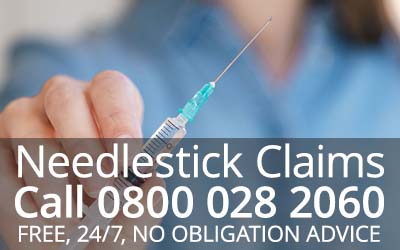
Professions Susceptible To Needlestick Injury
Needlestick injuries have long been a concern for those working in the health care sector. This includes doctors, nurses, surgeons, paramedics, phlebotomists, dentists and medical students. Non clinical staff such as housekeeping are inadvertently put at risk when needles/sharps are not stored or disposed of correctly by a primary user.
Many people believe that it is only those who work in a hospital/health care setting who are likely to sustain a needlestick injury, however that is not always the case. Injuries can also occur in other fields of work such as the police, probation services, laboratory technicians, refuse collection services, the funeral industry and tattoo/body art industry.
The majority of needlestick injuries happen to nurses because they are the ones carrying out procedures on a daily basis using sharp instruments such as cannulating or taking blood and administering injections. A survey of 4407 nurses undertaken by the Royal College of Nursing (RCN) in 2008 found that over half of the nurses interviewed feared a needlestick injury and almost half had actually been struck by a needle or sharp that had previously been used on a patient. The RCN has a long history of campaigning for improved protection for nurses and therefore works closely with both employers and regulators to ensure regulations are implemented and their workers protected.
A second high risk group are surgeons and surgical staff within the operating theatre who sustain injury from suture needles and other sharps used during a procedure. Injuries are most common when the procedures are complex, entail high blood loss and involve multiple surgical teams.
A large number of injuries come from incorrectly sorted needlesticks, discarded needlesticks and ones that haven’t been disposed of correctly bringing housekeeping (cleaners, porters, laundry and maintenance) workers to the forefront.
Regardless of where you work employers have a duty of care to their employees by providing training, protective equipment and safety procedures with specific legislation in place for employers to understand their legal obligations. Where the duty of care fails and employer negligence is to blame for your injury a claim for compensation can be made.
Our solicitors can help talk you through beginning a claim. A free no obligation initial discussion will allow you to discuss the details of what happened and for us to offer impartial advice and discuss with you what your legal options are.
Call us now on 0800 028 2060 or click here to start your claim.

Claiming For Your Needlestick Injury
Free Legal Advice
If you are unsure whether you can claim compensation for a Needlestick Injury as a consequence of your work environment, then call our personal injury claims team for free for no obligation advice on making a claim. They will ask you some simple questions about your condition, talk to you about what’s happened and can tell you if you have a viable claim for compensation or not. Call us 24/7 on 0800 028 2060.
Latest Needlestick Injury News
NHS Nurse Awarded £75,000 In Compensation After Pricking Finger With a Needle At Work
Trainee nurse, Mrs. Tobbal aged 45, developed a severe obsessive compulsive disorder and lives in constant fear of contamination after the incident, the court heard. Judge Edward Bailey said that the mother of five was working towards becoming a fully qualified nurse...




